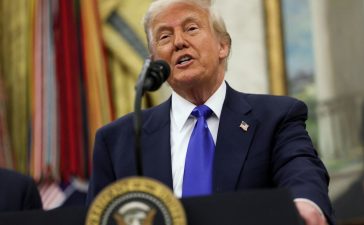UK ministers have tightened up sanctions rules to avoid a repeat of a recent controversy in which lawyers acting for the head of the Wagner group obtained an exemption from curbs to sue a British journalist.
The Treasury minister Joanna Penn announced on Thursday that the government would change the way it decides whether to grant licences for sanctioned individuals to use frozen money for legal cases.
Lady Penn said officials would now presume that applications to do so should be rejected if they are for use in “defamation and similar cases”.
The move comes two months after the website Open Democracy revealed that the Treasury had allowed Yevgeny Prigozhin, the Wagner group founder, to sue the British journalist Eliot Higgins.
Penn said: “In most cases, the use of frozen funds for payment of legal professional fees for defamation cases is not an appropriate use of funds, and in many cases will be against the public interest.
“Whilst still reviewing each individual application on a case-by-case basis (for both appropriateness and compliance with the right to a fair hearing), OFSI [the Office of Financial Sanctions Implementation] will, in future, take a presumption that legal fees relating to defamation and similar cases will be rejected.”
The British government put Prigozhin under sanction in 2020, accusing him of “being responsible for considerable foreign mercenary activity”. A year later, Prigozhin sued Higgins after the journalist tweeted links to a series of articles, including those published on his own website Bellingcat, linking Prigozhin directly to Wagner group.
The mercenary group has conducted extensive military attacks against the Ukrainian army since the Russian invasion last year.
Prigozhin used a British law firm, Discreet Law, to manage his case, but doing so required Discreet Law to obtain a licence as Prigozhin was under sanctions. Officials granted that licence, though the Treasury later said that decision was made without ministerial input and purely on the basis of how much it cost.
The case eventually collapsed in 2022 after Russia invaded Ukraine and Discreet Law dropped the case. But Higgins has been left with costs of about £70,000.
Officials said that under the new rules, Discreet Law’s licence application would have been treated differently, though they could not guarantee that it would have been denied.
Higgins said: “The lack of transparency around how the decision was made by OFSI in my case means we can’t really assess if these new measures would prevent the same thing from happening again.
“Currently the government appears incapable of giving a straight answer to how the decision was made, so how will we even know these measures are being implemented or measure their impact?”










